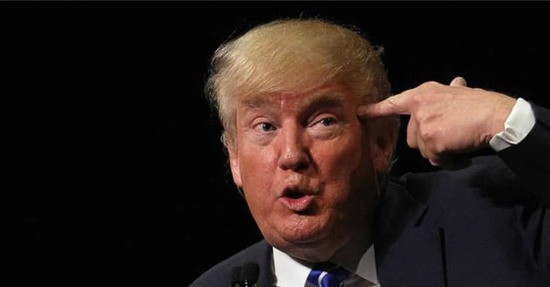Image Credits: Daily Kos .
Imagine the following scenario. A man calls an anonymous tip line and reports that he has been talking to colleagues at work and discovered that a certain Ronald Hump is responsible for a recent bank robbery and that he has deposited the money in a foreign account. When the police question Mr. Hump, he denies the charge but provides bank statements that show that he deposited the exact amount of money that was stolen in the same foreign account that was predicted.
Now, the investigators might still have some work to do before they could bring this case to a jury. They’d want to interview the people who spoke with the whistleblower and possibly use them as witnesses at a trial. But the whistleblower’s job would be done. He didn’t see anything firsthand. He wishes to stay anonymous. There’s not much further use for him. No one is going to care about him when the case is taken to court.
Mr. Hump could try a variety of defenses. But it wouldn’t help him to argue that he can’t be charged based on a tip from someone who wasn’t a firsthand witness to the robbery. He wouldn’t be able to say that he has the right to face his accuser, because the accuser in this case is the bank statement. It certainly would not help if he argued that the whistleblower is a traitor who should be shot. It wouldn’t make sense to argue that the tip line was only recently installed or that the phone number had recently changed.
As for the whistleblower’s loose-lipped colleagues at work, I don’t see how it would matter what the defendant thought of them. But saying that they should also be shot as traitors would not tend to advance a theory of innocence.
So far, these are the types of arguments that President Trump and his defenders have used to excuse his behavior during his July 25 phone call with Ukrainian president Volodymyr Zelensky. They are non sequiturs that are simply unresponsive to the charges. At best, their effectiveness can only be measured by their potential to intimidate or silence potential witnesses, and so they really constitute additional crimes.
Witnesses would certainly be helpful, but they aren’t strictly required to establish the main fact. Donald Trump has provided proof that he robbed the bank. We may still want to know who his coconspirators were and how they organized the robbery. We might want to establish a fuller motive than simple greed. We will want to understand how they tried to hide their guilt.
Yet, the whistleblower isn’t necessary for any of this. He already provided all the useful information that he possesses.
Now, some will say that all the charges against Trump are not proven. Perhaps the inexplicable withholding of military aid to Ukraine had nothing to do with his request for dirt on Joe Biden. The first problem with that argument is that it doesn’t matter. Soliciting politically motivated help from a foreign head of state is a crime all by itself. It should be an impeachable crime. The second problem is that, during the phone call, Trump made the sale of anti-tank weapons explicitly contingent on getting dirt on Biden.
The Democrats will want to flesh this part of the investigation out not because it should be necessary but because impeachment is reserved for “high” crimes. The more serious the crime, the better likelihood that the people and the Senate will agree that it warrants removal from office. So, examining how military aid was suspended and for what reasons will be important.
To finish up my analogy, Trump needs to convince people either that robbing banks is perfectly legal (at least, when the president does it) or that robbing banks may be illegal but it is not a “high” crime.
Those are his only available defenses, but he’s not using either of them yet. Instead, he’s just standing in traffic and yelling.
